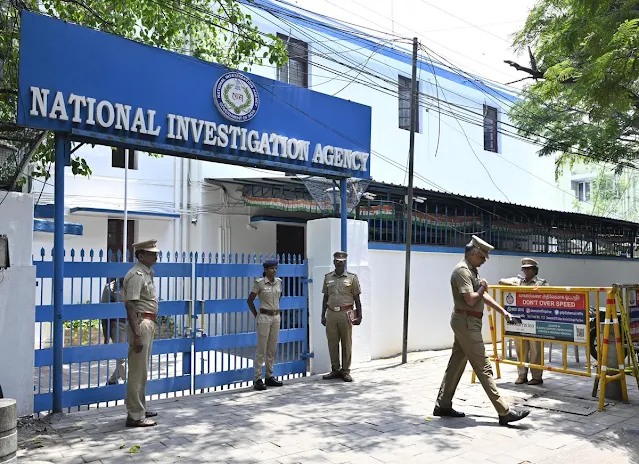The arrest of young Adivasi leader Raghu Midiyami by the National Investigation Agency (NIA) on February 27 has sparked widespread outrage among activists and civil society groups. Midiyami, a prominent leader of the Moolwasi Bachao Manch (MBM), was taken into custody at around 7 PM in Dantewada, Chhattisgarh. His supporters argue that the arrest is a politically motivated attempt to suppress grassroots resistance movements in Bastar.
According to an official NIA statement issued today, Midiyami's arrest is linked to an ongoing investigation into FIR No. 02-2023-NIA-RPR, registered on August 24, 2023. The agency claims that Gajendra Mandavi, another MBM member, was arrested in March 2023 with ₹6 lakh in cash and alleged Maoist-related pamphlets. The NIA now accuses Midiyami of being the president of MBM and engaging in “anti-India” activities, including funding Maoist groups.
However, activists and human rights organizations have dismissed these allegations as baseless and politically motivated. They argue that MBM is a democratic organization that has been working within the constitutional framework to address tribal rights issues. Critics also point out that Midiyami was not even named in the FIR and has been arrested more than a year later under dubious circumstances.
Midiyami has been a key figure in the resistance against the militarization of Bastar, particularly the forceful establishment of paramilitary camps on Adivasi land without consent from Gram Sabhas, a direct violation of the Panchayats (Extension to Scheduled Areas) Act (PESA) and the Fifth Schedule of the Indian Constitution.
His arrest comes months after MBM was banned on October 30, 2024, on the grounds of allegedly inciting locals against government "developmental projects" in Maoist-affected areas. The crackdown intensified after the May 17, 2024, police firing in Silger village, where four Adivasi peasants, including a pregnant woman and her unborn child, were killed. This massacre led to the rapid expansion of MBM and its involvement in over 30 mass movements across South Bastar.
Observers note that Midiyami’s arrest follows a familiar pattern seen in the past, where Adivasi leaders and activists resisting corporate exploitation and state repression have been labeled as Maoists and jailed under draconian laws. Many draw parallels with the persecution of Soni Sori, Hidme Markam, Lingaram Kodopi, and G.N. Saibaba, along with activists like Sudha Bharadwaj, Mahesh Raut, Father Stan Swamy, and Hem Mishra, who have faced similar charges under anti-terror laws.
The Forum Against Corporatization and Militarization (FACAM) has issued a strong condemnation of Midiyami’s arrest, calling it an attack on democratic dissent and an attempt to silence Adivasi resistance. They have demanded:
1. The immediate and unconditional release of Raghu Midiyami and all other Adivasi political leaders arrested on similar charges.
2. An independent inquiry into the Silger police firing and the government’s suppression of tribal movements.
3. The withdrawal of fabricated cases against activists resisting land dispossession and militarization.
Human rights groups and progressive organizations have also urged wider national and international attention to the ongoing repression in Bastar, emphasizing that the state’s actions amount to a war against its own people in the name of counterinsurgency.
As tensions rise, protests are expected to intensify in the coming days, with calls for solidarity across India to defend Adivasi rights, democratic freedoms, and constitutional safeguards in tribal regions.


Comments